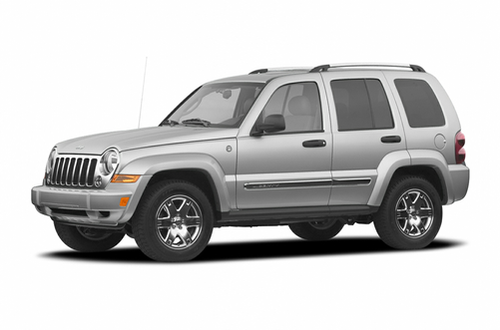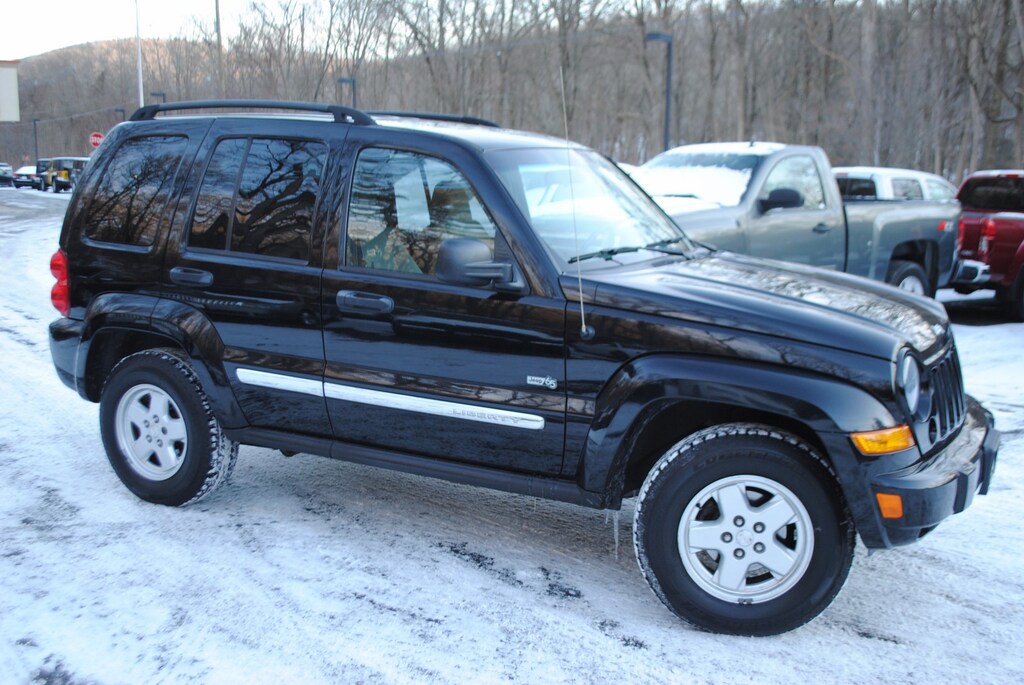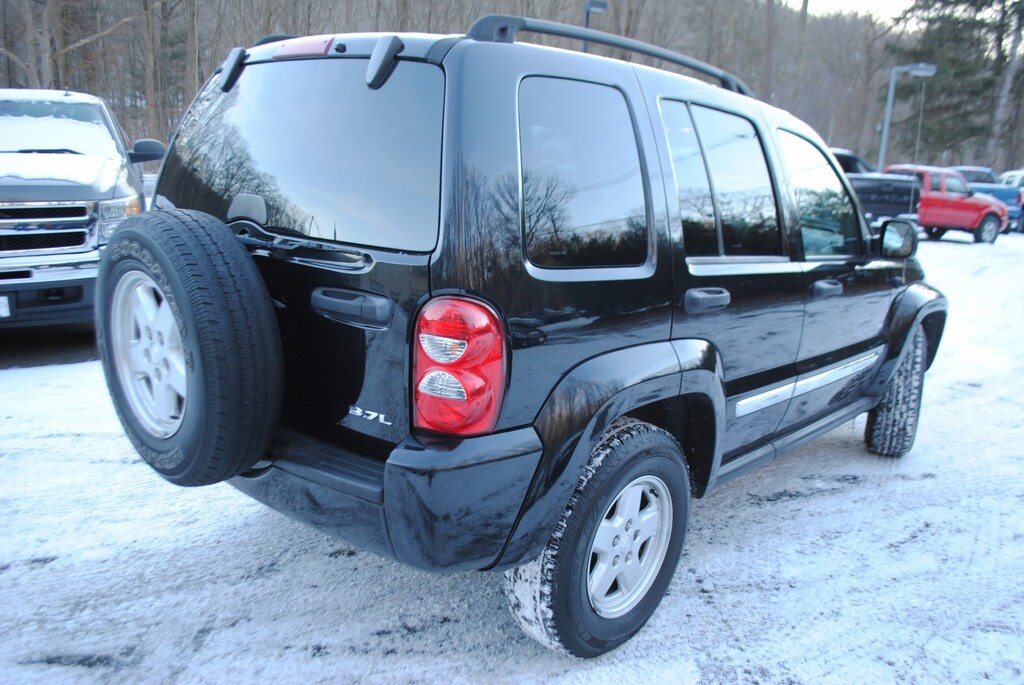
Sunroof
2006 JEEP LIBERTY SPORT
1J4GL48K66W291445
4 DOOR SPORT UTILITY
3.7L V6 F
4 WHEEL DRIVE

At a time when price per gallon is as volatile as fuel itself, interest has returned to diesel technology, which turns our attention to the diesel version of Jeep's compact sport utility vehicle, the quick-selling Liberty CRD (technically either the Sport or Limited 4x4 trim level with optional equipment). Diesel engines are about 20 percent more efficient than comparable gasoline types, so they burn less fuel. In this country, diesel engines have long come in heavy duty pickup trucks, and more recently in the Ford Excursion and Hummer H1 SUVs, but the only companies to sell diesel passenger cars in recent times have been Mercedes-Benz and Volkswagen.
The Liberty has changed little recently, so I'm concentrating on the diesel aspect in this report. I'm a diesel fan, in part because of a fascination with biodiesel — the alternative fuel on which I'm most bullish. Diesels have a bad reputation in the U.S., where they're perceived as dirty, smelly, cacophonous and underpowered. People complain that diesel fuel is too hard to find, too messy to dispense and not substantially cheaper than gas. I got into the Liberty thinking all these notions were overstated and out of date.
Thanks to trucks, old-school engines and General Motors' catastrophic attempt in the late 1970s and '80s to convert gasoline engines into diesels, Americans generally are turned off by the very idea. What they don't realize is that there are actually many very smooth, quiet, refined and potent diesel car engines in the world now.
Unfortunately, the Liberty's is not one of them. The turbocharged 2.8-liter inline-four-cylinder starts like the diesels of yore, with a raucous clatter that dies down only somewhat as the engine warms up. It's not an engine so much as a gem tumbler. Now, I wouldn't be so harsh if ... if the Liberty weren't. But seriously, if diesel engines are to stand a chance of making inroads in North America, people need to recognize that the Liberty CRD is hardly the best that technology has to offer. The reality is that many Americans have been exposed to modern executions of diesel power by sharing the road with Mercedes and Volkswagen diesel models. They just didn't know it.
So what exactly is good about diesels? Torque is good, and diesels have plenty of it. Take a look at the ratings below for the Liberty's diesel and gasoline engines.
| Jeep Liberty Engines | ||||||||||||||
|---|---|---|---|---|---|---|---|---|---|---|---|---|---|---|
| Gasoline | Diesel | |||||||||||||
| Type | 3.7-liter V-6 | 2.8-liter inline-4 | ||||||||||||
| Horsepower | 210 @ 5,200 rpm | 160 @ 3,800 rpm | ||||||||||||
| Torque (lbs.-ft.) | 235 @ 4,000 rpm | 295 @ 1,800 rpm | ||||||||||||
| Redline | 6,000 rpm | 4,300 rpm | ||||||||||||
| EPA-Estimated Fuel Economy (city/highway, mpg) | 17*/22 | 22/26 | ||||||||||||
| *Four-speed automatic; six-speed manual is 18 mpg city Manufacturer data | ||||||||||||||
Clearly, the diesel has more torque than horsepower, and gobs more torque than even the larger-displacement V-6. This is not a bad thing for the stop-and-go nature of U.S. motoring. In practice, the Liberty CRD lurched off the line like a stallion. The automatic transmission has five gears, but I noticed when accelerating onto the interstate that the stallion went a bit lame.
I drove the Liberty CRD on a private offroad course, where another benefit of diesel power was evident: the ability to climb over obstacles without breaking a sweat. I switched the transfer caseto low gear, put the transmission in 1st and took my foot off the pedals. The Liberty CRD did the rest. It needed no coaxing to climb moderate inclines, and it even descended the declines in a more controlled fashion than the gasoline version did. A diesel's higher compression ratio gives it more engine braking.
Roughly half of the cars sold in Europe are diesel, mainly because fuel is much more expensive there and concern about greenhouse gases is greater. Because diesels burn less fuel, they release less carbon dioxide, the greenhouse gas. But aren't diesels dirty? Yes, here in the U.S. they pollute more than gasoline, but greenhouse gas technically isn't a pollutant. Car pollution, also called emissions, includes stuff like nitrogen oxides and particulate matter, both of which are in high concentrations in diesel exhaust. Their contribution to smog is why diesel car sales are outlawed in California and a few restrictive Northeastern states.
Overseas, low-sulfur fuel and additional onboard pollution controls make diesel cars dramatically cleaner. The U.S. Environmental Protection Agency is requiring the phase-in of this cleaner fuel starting in June 2006, after which any new, properly equipped diesel that burns it will meet stringent new standards.
When the time came to return the Liberty, I went to the web to find a diesel filling station. I had to drive a little farther than I would for gas, but I rationalized it away. When I arrived, the diesel pump was out of order. Then I drove around looking for another one, beginning to feel the inconvenience I'd dismissed before. When I finally found one, sure enough, the pump handle was coated in the oily diesel fuel, which doesn't evaporate like gasoline does. The concrete was coated, too. When the tank was full, I literally skated back to the front door and got in, tracking a film of diesel fuel and its accompanying odor with me.
My receipt told me that I'd bought 10.7 gallons at $2.90 per gallon. Unfortunately, at the time, a few weeks ago, regular gasoline was selling at the same station for $2.35 per gallon — about 23 percent less. That means that if I got the true 20 percent better fuel economy with the diesel, I still paid a little more than I would have for gas.
Historically, diesel fuel cost considerably less than gasoline. Then it crept up, overtaking gasoline prices in the fourth quarter of 2004. Ever since, it has been neck-and-neck, with diesel occasionally more expensive. In the past six months, higher diesel prices have dominated, thanks mainly to the Gulf region's brutal hurricanes. To oversimplify, gasoline is basically further-refined diesel, which means high demand for one affects the other's availability, and gasoline got the priority.
Fuel pricing is always complex and seldom follows rules. Diesel fuel is similar to home heating oil, so late autumn and early winter typically bring scarcity that raises diesel prices. Now that we're almost through a warmer-than-average winter, one would expect diesel prices to come down. We're still waiting. Now, as this review publishes, the price remains higher: an average $2.54 per gallon nationally, while regular gasoline is $2.37.
The more I learn about energy, the more it seems that it's an industry in balance. Significantly cheaper fuel will never come. The most we can hope for are alternatives that are slightly more affordable or that have some other benefit, such as renewability, lower pollution and domestic sourcing. Biodiesel offers all of these and is compatible with petroleum diesel. If its availability increases, there's no shortage of cars overseas that offer diesel engines, including some we're accustomed to in the States, like the Liberty.
So with all the downsides of diesel and the Liberty CRD, why has the model sold so quickly? Because some people just like diesels. Their fuel economy is better, they have greater towing torque, and diesel engines tend to last twice as long as their gasoline counterparts. I also believe there's a type of person who buys a diesel not in spite of but because of its roughness. They like waiting for a glow plug to warm up before starting the engine. They like the clatter. They like filling up at an exclusive pump and generally feeling like they have something unique. Nowhere is this rough and crude engine type going to succeed more than in the rough and crude genre of offroad vehicles. Given the Liberty's market success, don't be surprised to see more diesel SUVs in the future.






